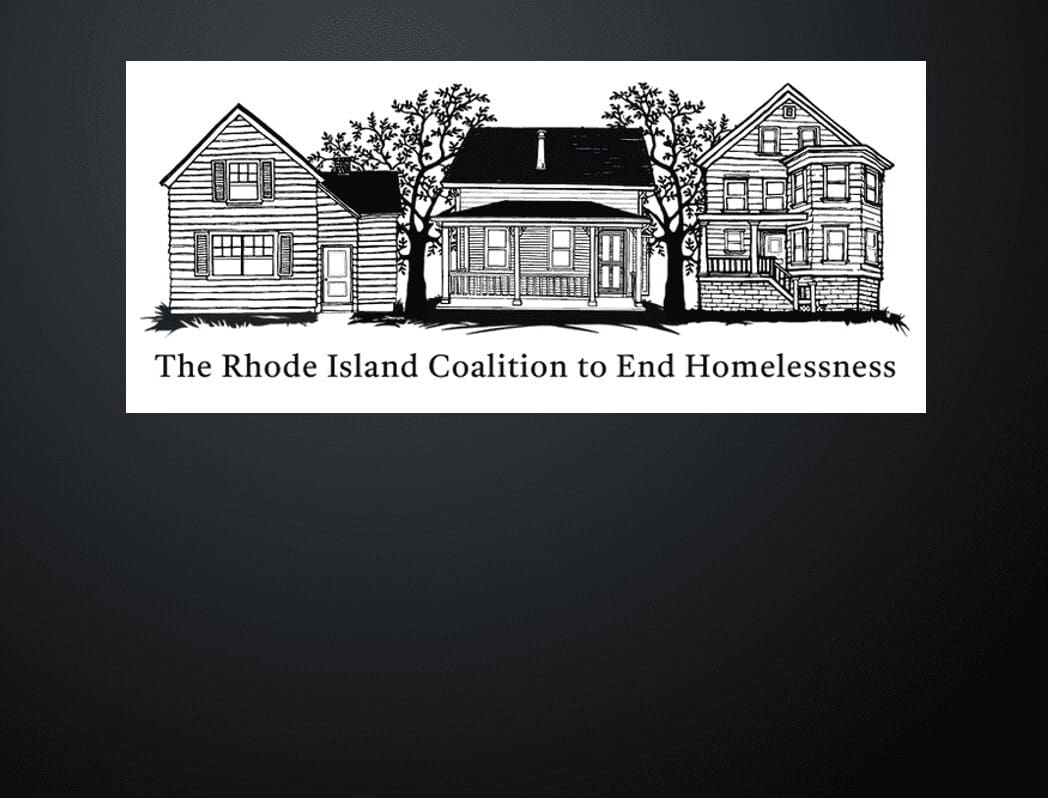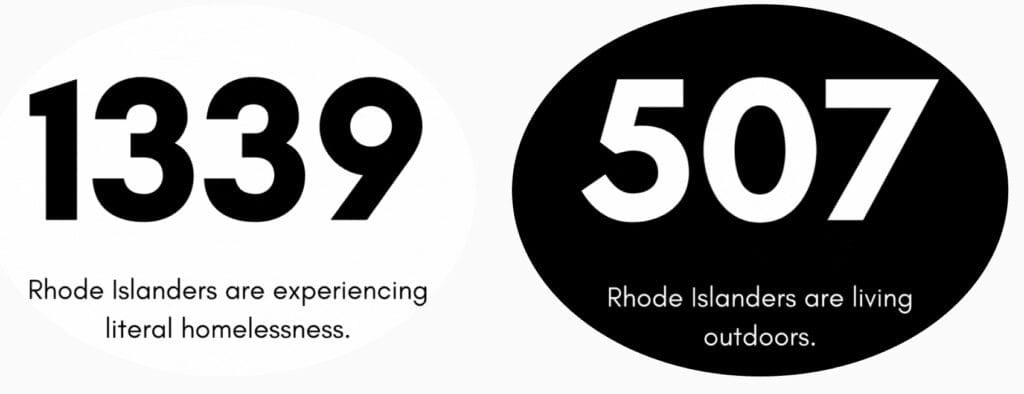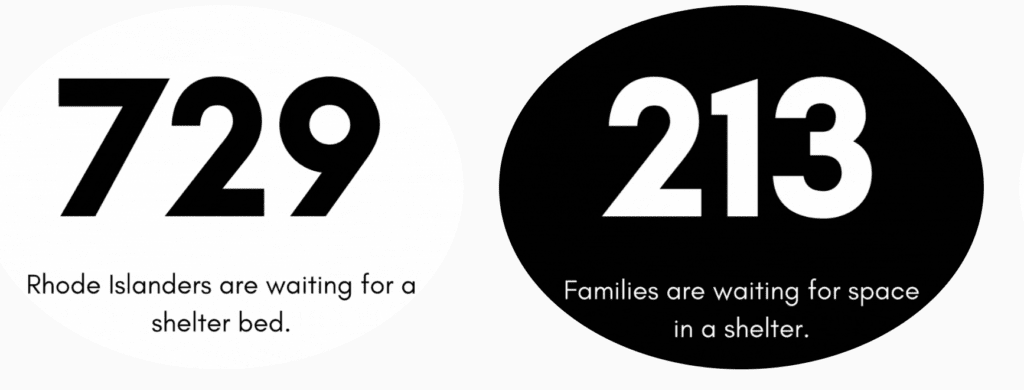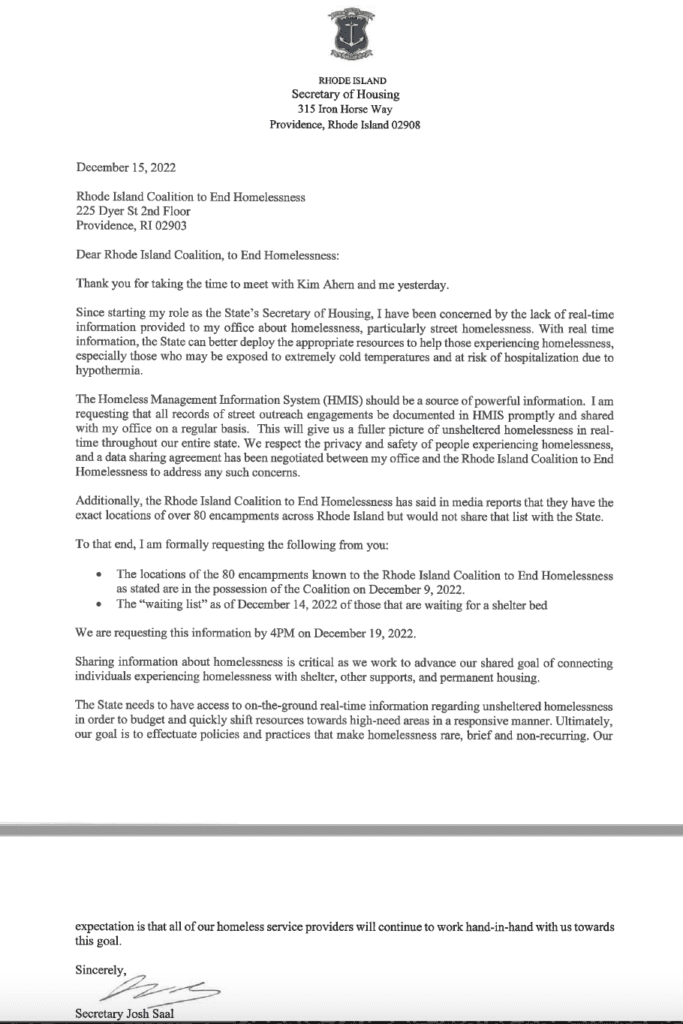Search Posts
Recent Posts
- Outdoors in RI: 138th Arbor Day, Princess Kate and access to nature, Winnapaug Pond, Vets fish April 18, 2025
- Saving lives, Paul Rego donates his 100th gallon of blood at the Rhode Island Blood Center April 18, 2025
- Rhode Island Weather for April 18, 2025 – Jack Donnelly April 18, 2025
- National Financial Literacy Month. BankRI offers free, virtual workshop: “Smart money moves… April 18, 2025
- GriefSpeak. Technology in Death and Grief – Mari Nardolillo Dias April 18, 2025
Categories
Subscribe!
Thanks for subscribing! Please check your email for further instructions.

State demands homeless information from Coalition. They say, “we don’t have it”
The feel-like temperature in Providence is 36 degrees – it will rain heavily throughout the day.
The Cranston Street Armory will open its doors at 5pm TODAY.
Thursday afternoon, the Rhode Island Secretary of Housing gave the Rhode Island Coalition to End Homelessness its marching orders to produce specific data by Monday, December 19th. This data needs to include:
– the specific locations of the 82 homeless encampments that exist in Rhode Island as known on December 9th
– the Coordinated Entry System (CES) waiting list
– the Coalition must use the Homeless Management Information System (HMIS) for documenting all its encounters with individuals and report that to the Secretary of Housing on a regular basis
Response from RI Coalition:
Jennifer Barrera, Chief Strategy Officer at the RI Coalition to End Homelessness, in an interview with Uprise RI after the letter was released said,
“Recently we’ve been asked to provide the location data and we told them we don’t have it. That’s the way that we protect our client’s privacy and security – particularly the folks that are unsheltered. If we have a list somewhere in our database of the location of every encampment – street address-wise – it is a risk. Our clients are at risk of physical harm; they’re at risk for their encampment to be vacated by a request that they move; they’re at risk of their encampments being destroyed, damaged, or items being stolen.
The street outreach providers maintain their own individual records, or knowledge of locations and they don’t share it with anyone because it’s just like you or I: You wouldn’t want your street address being blasted out to everyone in the State of Rhode Island if you were at risk. So we’ve told the state that we don’t have the data.”
The Coalition has also stated this in several television interviews – from an NBC10 interview with Barrara:
“All of the homeless advocates who are involved in those actions also share the same thought as I: we need to focus on getting sufficient resources for shelter beds and housing online in the state of Rhode Island. That needs to be our main focus,” Barrara said… “there’s no physical list, adding outreach workers keep the information themselves. The privacy and security of people living in those encampments is paramount,” she said. “People experiencing homelessness are really vulnerable for physical violence, for some of the municipalities or other entities to come in and remove their encampment.”
Who is the RI Coalition?
The Coalition represents members of the agencies working on the issue of homelessness in Rhode Island – most, by not all. The Coalition manages the HMIS system as well as the federally funded CES intake system where all people in the state must apply to be put on a prioritized waiting list. The Coalition is publicly resistant to sharing of information with the executive office of the Governor or the Secretary of Housing. However, it describes itself as:
“The Coalition, a statewide organization that engages collaboratively with advocates, providers, and
faith-based organizations across Rhode Island to create and advance lasting solutions to prevent and end homelessness…The State of Rhode Island, including the Rhode Island Executive Office of Health and Human Services (EOHHS) and Executive Office of Housing are close partners in these efforts.”
How many children could be living outside?
The Coalition itself, provided the data that documented that children are living in both sheltered and unsheltered situations. In various media interviews, they further reinforced that fact known to them by saying the homeless were in fear of being identified and having their children taken away from them.
In addition to the anecdotal information is specific data from its own 2022 Point-In-Time count, done in January and set again for the end of January in 2023, almost one year later. Children in The Point-in-Time (PIT) count is a count of sheltered and unsheltered people experiencing homelessness on a single night in January. See the numbers, below, of “persons under 18 years” – there were 317 in 2022 – up 62% since 2019. How many of these children in “unsheltered” circumstances were reported to DCYF, per regulations? What the count will show in one month could be estimated at an average 14% increase for a total as high as 360+.

___
Published by the Coalition are the latest numbers of people who are unhoused in Rhode Island: The numbers continue to rise – from mid-200s to high-300s to, as of yesterday, just over 500 – a moving target to provide emergency housing for. Numbers were gathered at the beginning of November:


__
Letter issued Thursday to Coalition to End Homelessness from Secretary of Housing, Josh Saal:

Follow our series – Homeless in RI:
More, here: https://rinewstoday.com/?s=homeless

No one wants to see homeless people suffer. NO ONE
Some homeless have issues that make it nearly impossible to be housed.
Drug users can be a danger to the other homeless, as well as those with serious behavioural and psychological issues. Not to mention criminals who may prey on them.
There are those who don’t know how to be a good or clean tenant. (and neglectful or greedy landlords).
The cost of buying, renting, or maintaining a house has never been higher.
Due not only to inflation, market conditions, taxes, greed, and other factors are generally not in anyone person’s control.
To deny the data to the courts or Governors Office is WRONG. I am sure that there is a way to convey the infomation in a confidential manner, assuming that the data is true and correct, ….
To expect the government to help without providing them the tools is insane, unfair and not in the best interests of those seeking help.
There is NO one resolution to the issues that has plagued every state and nation, from day one.
Denying this info could lead some to believe that there is a political agenda. I sincerely hope that this is not the case.
Lets get these people off the streets by working together. Provide the data to allow those in charge to wrap their arms around the information and help target those groups respectively ..focusing on the children initially.
Then you can hold those responsible for inaction, or whatever.
Just my honest thoughts and advice.